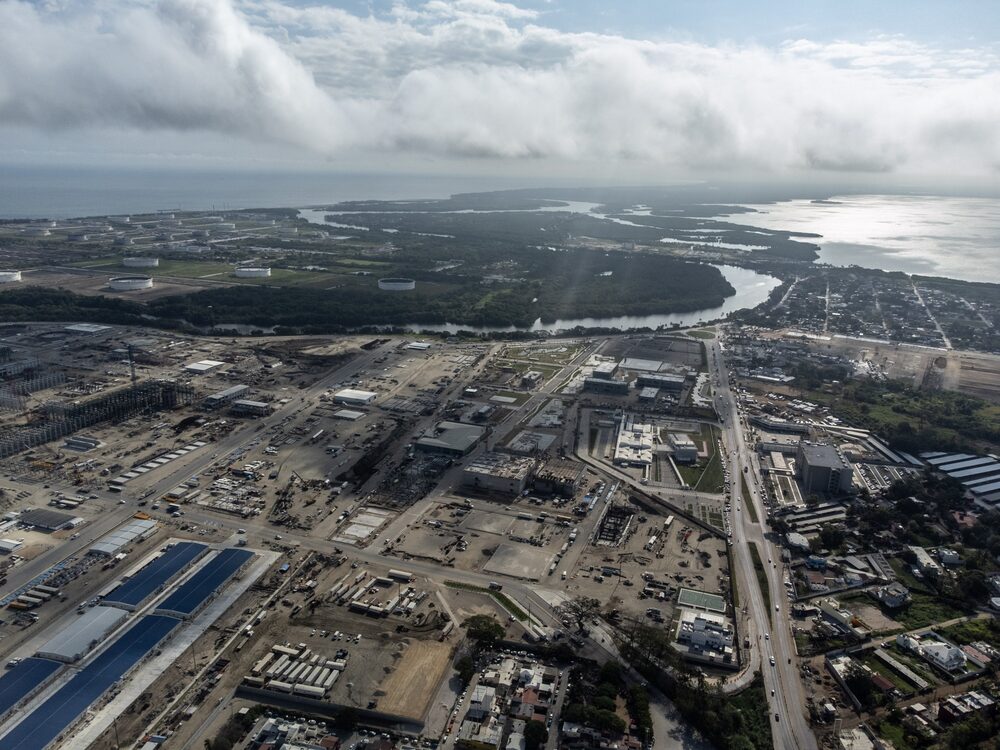Bloomberg Línea — Colombian coffee production dropped by 20% in January in comparison with the same month of 2021, totaling 868,000 60 kg bags, the country’s national federation of coffee growers reported on Friday.
Mexico’s automotive industry recorded its seventh consecutive month of vehicle production and export declines due to the effects of an increase in Covid contagion and the persistent shortage of semiconductors.
On the region’s stock markets, Brazil Ibovespa (IBOV) was the best performer, closing 0.49% on Friday and returning to positive territory after two consecutive days of losses. Locaweb (LWSA3), Petro Rio (PRIO3) and Cielo (CIEL3) shares performed well, along with those of Petrobras (PETR4) and Vale (VALE3), buoyed by international oil prices.
The Mexican stock exchange rose 0.22%, recovering from Thursday’s fall, after having been affected by the slump in the U.S. stock markets.
Following is a roundup of Friday’s news from Bloomberg Línea and Bloomberg reporters across Latin America.
Argentina
- Argentina’s capital Buenos Aires scored the highest points out of the six Latin American cities on the U.N.-Habitat’s City Prosperity Index, with the city ranking in 12th place with 63.5 points out of a total of 100, and is categorized as having “moderately solid” urban policies. The other five cities of the region on the ranking are Bogotá, Mexico City, Lima, São Paulo and Santiago.
- An agreement between Argentina and the International Monetary Fund (IMF) will not be enough to improve the country’s credit profile, and would therefore not imply the country’s return to the international credit markets, according to a report published Friday by Moody’s.
- The government ratified its intention to apply a segmentation to energy tariffs, and a single increase of no more than 20% this year.
- Meanwhile, the country’s exports hit record levels in 2021, totaling $77.93 billion.
Brazil
- Ebanx, a Brazilian fintech company that has Advent International as a shareholder, postponed its IPO in the U.S. because of recent market turmoil. The company, which eventually may seek a valuation exceeding $10 billion, isn’t planning to go public in the first half of this year as previously expected.
- Brazilian shoemaker Arezzo (ARZZ3) raised about 834 million reais ($158 million) in an equity offering as it looks for additional acquisitions. The company sold 10,125,000 shares at 82.35 reais apiece, a 0.8% discount to Thursday’s close. The company, which purchased fashion retailer Reserva amid the pandemic and is the sole distributor of the Vans brand in Brazil, will use the proceeds for the opening of new stores, distribution centers and potential acquisitions.
- Brazil’s Securities and Exchange Commission warned the capital market about the irregular performance of 12 foreign financial institutions that are not authorized to attract clients residing in Brazil.
Chile
- Chilean mining companies, farmers and utilities were in the crosshairs of Chile’s Constituent Convention this week as its commissions voted to eliminate existing water rights and open the way for a nationalization of mines. However, there are many steps to go before either measure comes to fruition, with the new constitution being drawn up by the convention still at the debating stage.
Colombia

- Mining production in Colombia could increase by 10% in 2022, thanks to a higher demand for coal worldwide due to the economic recovery, high gas prices and the geopolitical situation in Europe.
- The Ministry of Finance presented its financial plan and is showing more optimism about the performance of the Colombian economy in 2022, with 5% GDP growth forecast, up from a previous forecast of 4.3%.
Ecuador
- On an official visit to China, Ecuador’s President Guillermo Lasso has been promoting his country as an ideal investment destination, and in conversations with representatives of Asian industries proposed six projects as priorities for the South American country.
- Buying a property in Ecuador’s capital Quito is now cheaper than a year ago, with house prices an average 5.4% lower, while rentals are more expensive.
Mexico
- The country’s automotive industry recorded its seventh consecutive month of vehicle production and export declines due to the effects of an increase in Covid contagion and the persistent shortage of semiconductors. Carmakers in the country produced 253,366 vehicles in January, 9% below output in January 2021, and 22.7% lower than pre-pandemic levels. January’s was the lowest production figure for the first month of the year since 2014. Mexico’s car exports dropped 3% year-on-year during the month to their lowest level since 2016.
- The Olmeca oil refinery under construction in Dos Bocas, in the state of Tabasco, one of President Andrés Manuel López Obrador’s flagship infrastructure projects, reported to the Treasury that progress made between the start of the current administration in December 2018 and December 2021 is a mere 0.39%.

Peru
- Spanish energy company Repsol forecasts that it will conclude clean-up works at the oil spill that totals more than 11,000 barrels by February 15, José Reyes, the head of company’s safety and environment team at La Pampilla Refinery, said on Friday.
Venezuela
- The Venezuelan government and Chevron Corp. are in preliminary talks to allow the company to have greater control of some operations in exchange for debt relief, as the country’s government strives to increase production despite U.S. sanctions.

